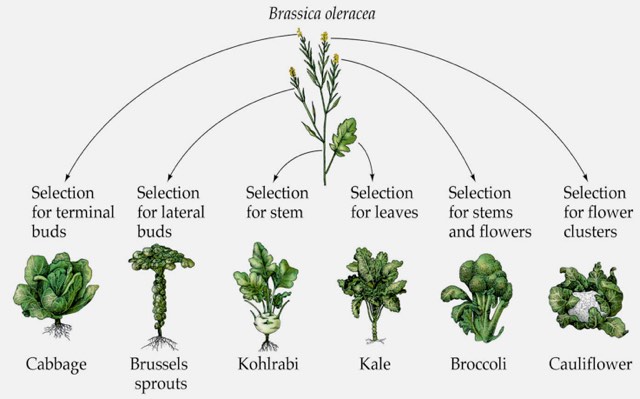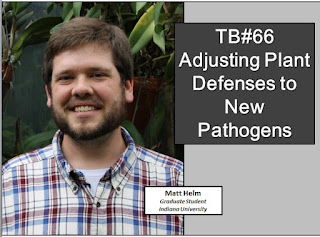Talking Biotech #68 - Brassica oleraceae, the Dog of the Plant World

Today's podcast is about Brassica oleracea a species with many forms. Broccoli, cauliflower, brussels sprouts, cabbage, kale and kohlrabi are all members of the species. That's right, these very different forms have almost exactly the same genetics, with minor differences. The differences were all installed by domestication. Humans found a trait that they liked, and over the course of years they had a distinct form of the plant. Brassica oleracea is the species of plants that have many derived forms, all a product of human selection. In this case, can we say that any of these crop plants are "natural"? This week's discussion is led by Dr. J. Chris Pires and his students from the University of Missouri. It is a lot like the story of dogs, where they all descend from a common grey-wolf ancestor. Today's podcast is with Dr. J. Chris Pires and his graduate students Makenzie Mabry and R. Shawn Abrahams.





